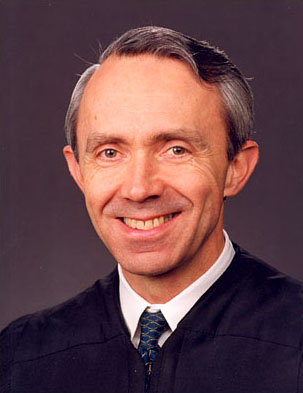 What might the retirement of Supreme Court Justice David Souter mean for the environment? Probably not a lot.
What might the retirement of Supreme Court Justice David Souter mean for the environment? Probably not a lot.
Though he was appointed by President George H. W. Bush, Souter has proven a reliable member of the court’s liberal wing, so if Obama appoints another liberal, don’t expect much change.
Souter voted with the majority in the landmark 2007 climate-change case Massachusetts v. EPA, in which the court found that greenhouse gases are “air pollutants” under the Clean Air Act and therefore the EPA has the authority to regulate them. That decision laid the groundwork for the EPA’s finding in April that greenhouse gases pose a danger to public health and welfare. Now the EPA is working to develop regulations for CO2 and other planet-warming pollutants.
Also in 2007, Souter wrote the unanimous majority opinion in Environmental Defense, et al. v. Duke Energy Corporation, which found that Duke Energy violated the Clean Air Act when it modernized coal plants without installing better pollution-reduction equipment.
More on Souter’s environmental record from Legal Planet, where Ann Carlson writes, “Although Souter has been a reliable vote, he has not been an important environmental voice on the court, authoring none of the most significant environmental cases in recent years.”
UPDATE: Earthjustice has just put out a statement about Souter’s retirement from Glenn Sugameli, their senior legislative counsel:
Retiring Supreme Court Justice David H. Souter has a distinguished, lasting legacy of upholding laws that safeguard our environment.
President Obama’s selection of a new Justice will likely determine the fate of basic environmental safeguards for decades to come.
For example, four of the remaining Justices unjustifiably attempted to gut the Clean Air Act’s global warming provisions, and to reinterpret the Constitution to selectively prohibit access to court in the 2007 Massachusetts v. EPA case. In that case, Justice Souter’s vote was decisive.
One more vote would have blocked any state or citizen court challenge to the Bush EPA’s refusal to enforce Clean Air Act global warming provisions, while allowing polluters to file lawsuits against any global warming regulatory safeguards that might cost them money. Obama’s EPA recently declared that greenhouse gases pose a serious threat to public health in response to the Supreme Court’s decision in that case.
President Obama has the opportunity to select a new Justice with a record that shows respect, understanding and sensitivity to environmental laws that protect all Americans.
Polluters have asked judges to invalidate and to rewrite key safeguards in the Clean Water Act, Clean Air Act, and other statutes that protect the health, safety, and rights of workers and consumers. It is vital that the Supreme Court continue to reject these unjustifiable arguments that could threaten decades of progress in cleaning up our environment and protecting our families and communities.



